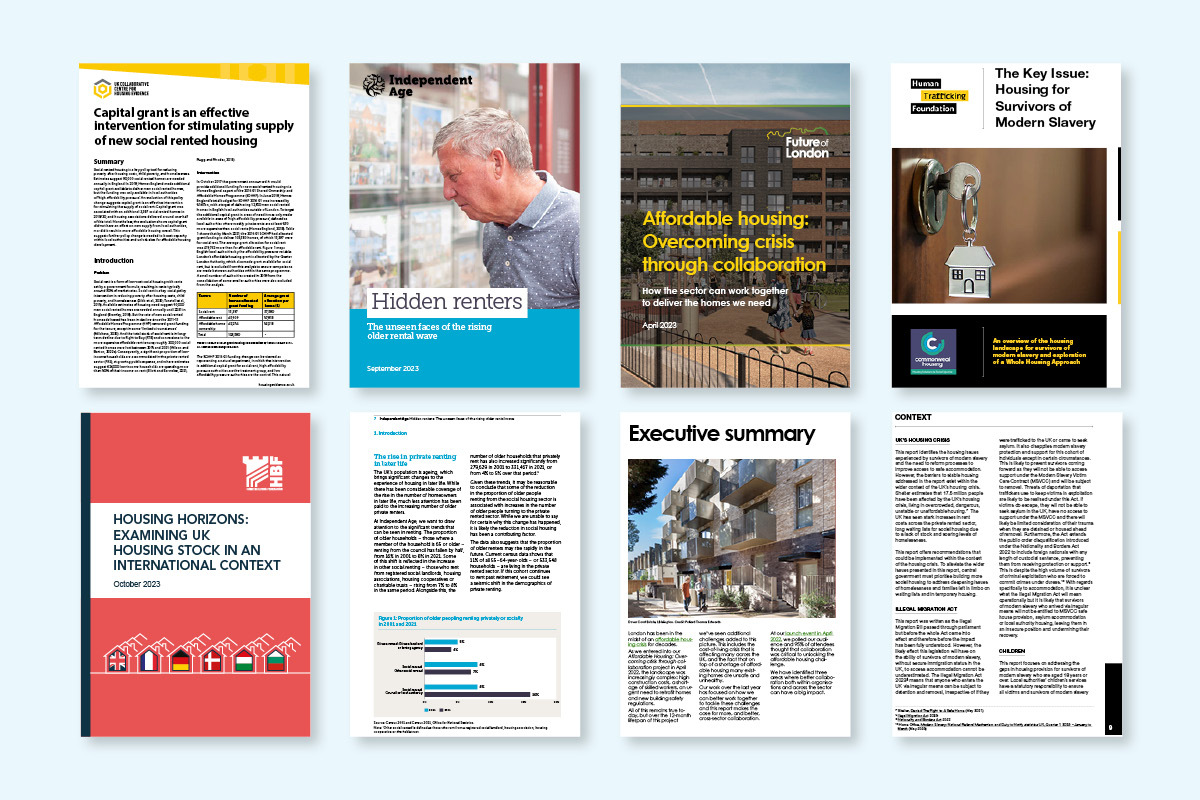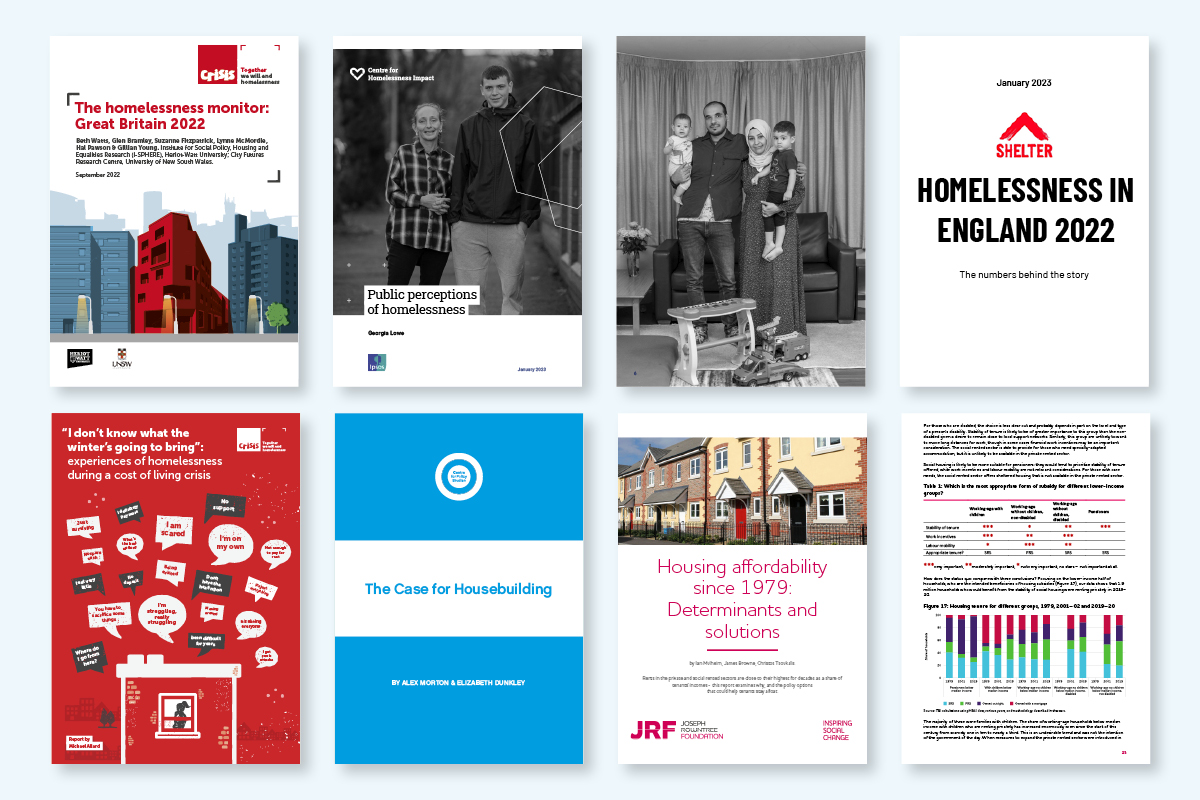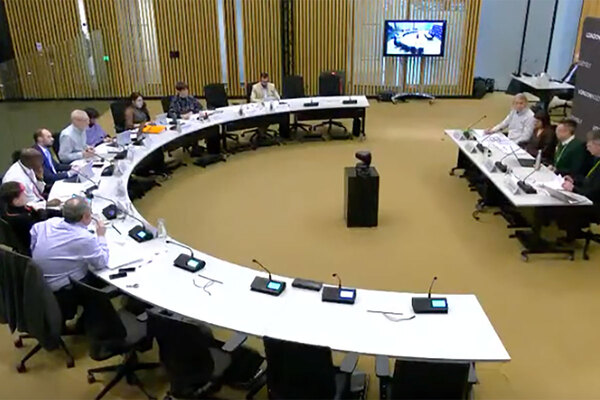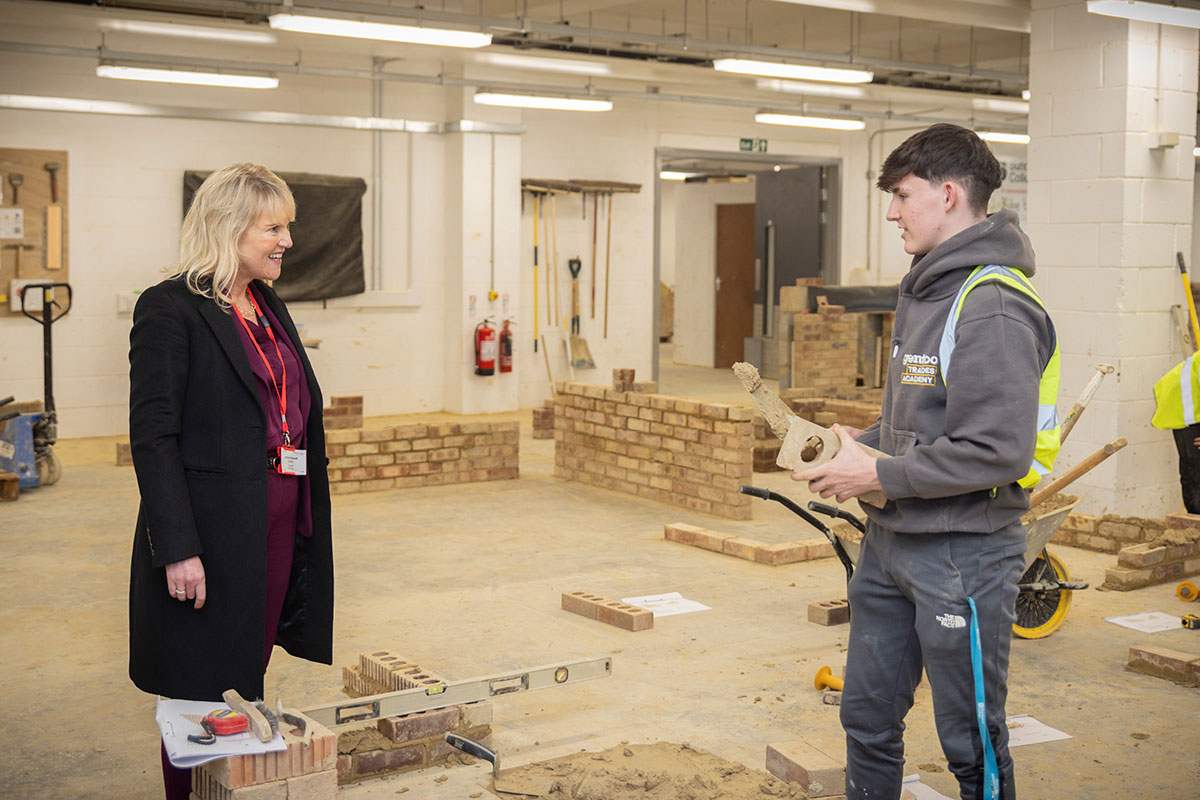
Francesca Albanese is head of research and evaluation at Crisis
The Thinkhouse Review: hidden consequences of the housing crisis
Research highlighting the unaffordability of UK housing compared with the rest of Europe and long-term poverty among older renters are among the must-read work from the past month, according to Francesca Albanese
The severity of the housing crisis gripping the UK has far-reaching impacts. We know some of us are more at risk of experiencing poor-quality, insecure and unaffordable housing, and some people have no home of their own at all.
This month’s Thinkhouse review highlights reports drawing attention to the problems faced by people at the most acute end of the housing market, shows how unaffordable the UK housing market is compared with the rest of Europe, and outlines solutions that could boost existing and new housing supply over the short and longer term.
A report by Independent Age focuses on the challenges older renters face. Hidden renters: The unseen faces of the rising older rental wave is a helpful overview of the key problems many older people encounter in navigating the private rented sector – and, at the sharp end, being pushed into homelessness.
The cumulative impact of decades of a lack of affordable housing coupled with the more recent cost of living crisis means we now have a population where, at all life stages, people either can’t afford homeownership or get access to social housing. The private rented sector is therefore the only option, and this is increasingly affecting older people.
A striking finding in the report is the prevalence of long-term poverty among older renters (25%) compared with the population (6%), and it points to housing costs as a key driver of this.
The research also looks at why rising rents and affordability are of particular concern for older people, who cannot increase their incomes, and have little or no savings within the constraints of state pensions. As for many people in receipt of housing benefit, it does not cover rent, and there is a disproportionate level of rent arrears among older renters.
Another group often hidden in the housing crisis is victims of modern slavery. The Human Trafficking Foundation has published The Key Issue: Housing for Survivors of Modern Slavery. Escaping exploitation forces many victims of modern slavery into homelessness. Having access to safe and appropriate accommodation enables improved recovery and stops people returning to the perpetrator.
But as the report sets out, a lack of adequate long-term housing options can prevent full recovery and leaves many people feeling unsafe and isolated.
The report looks at the whole housing approach, a framework for addressing housing and safety needs for survivors of domestic abuse, and how the benefits of this (acknowledging the limitations of the model) could be applied to housing provision in support of victims of modern slavery.
There are helpful principles but, as for many people accessing housing at the acute end of the market, systemic issues and policy barriers are in the way.
The report draws attention to the problems that both priority need and local connection rules in the homelessness system cause victims of modern slavery. The need to enact the 2017 commitment to provide accommodation for people before they enter the National Referral Mechanism, the framework for identifying and referring potential victims of modern slavery and ensuring they receive the appropriate support, is also a problem.
A few publications this month focus on how the supply of housing can be boosted and the wider benefits this would have.
A short paper by the UK Collaborative Centre for Housing Evidence (Cache), Capital grant is an effective intervention for stimulating supply of new social rented housing, evaluates the additional Homes England funding made available in 2018 to deliver new social rented homes, but only in local authorities of “high affordability pressure”.
The analysis shows that while the capital grant was associated with some additional social housing, it was limited (delivering 3,387 units). As many others are calling for, the report recommends there needs to be a substantive increase in the capital grant budget to stimulate new social housing supply.
Future of London looked at the role collaboration can have on increasing housing delivery. Their report, Affordable housing: Overcoming crisis through collaboration, showcases a mix of demonstrator projects designed to unlock new genuinely affordable housing from existing and new stock. A range of case studies feature examples of retrofit, new financial models and community engagement approaches.
Housing Horizons: Examining UK Housing Stock in an International Context from the Home Builders Federation concludes that England is the most difficult place in the developed world to find a home. The in-depth comparative analysis on housing supply, conditions and cost is thought-provoking and well worth a read.
A striking statistic in the report shows that the equivalent of a fifth of the population in the UK (11.3 million people) spend more than 40% of their income on housing – testament to why we need to act now to stop housing inequity getting worse.
Francesca Albanese, head of research and evaluation, Crisis
Sign up for our homelessness bulletin
Already have an account? Click here to manage your newsletters












